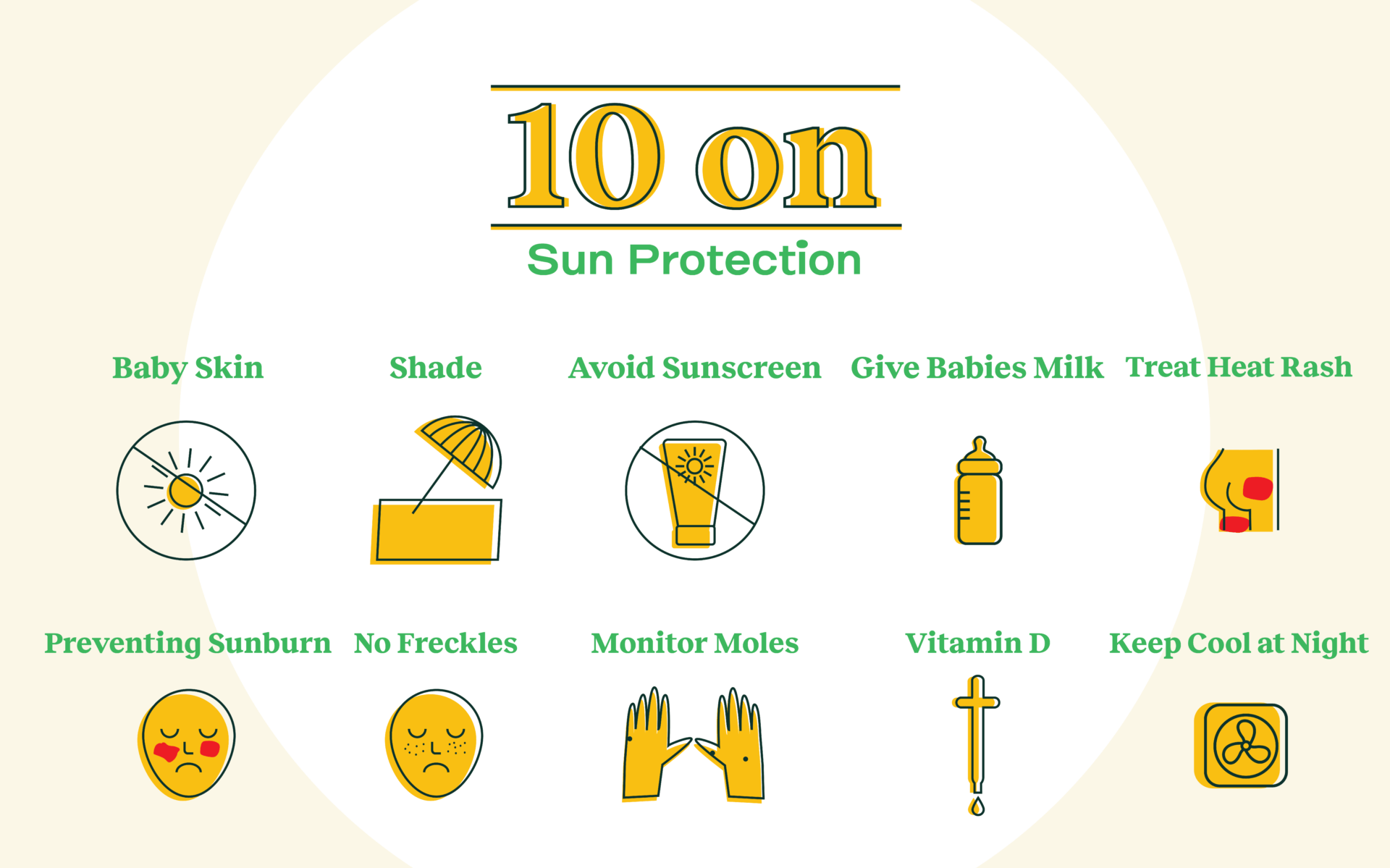We are proud to say that these posts are not sponsored. Our editorial team of Bobbie moms and writers personally select each featured product. If you buy something through our links, we may earn an affiliate commission, at no cost to you.
Here are 10 things to know about protecting your baby from the sun. From child safe sunscreen to treating heat rash, we’re here to help keep your baby’s skin safe. Skin protection is an all year round thing for babies, with extra caution needed for summer or vacation.
1- Baby skin and sunlight
Babies should be kept out of direct sunlight until they’re 6 months old, according to the American Academy of Pediatrics.
2- Babies need shade
Stroller canopies, parasols, hats, tents, a big tree, whatever it takes, keep your baby’s skin in the shade where possible.
3- Avoid sunscreen for babies
Dress your baby in light, breathable fabrics, e.g. cotton, rather than slathering them in sunscreen before six months old, as per the FDA, to avoid irritations like contact dermatitis. That said if you need to use sunscreen, use it and choose a physical sunblock with zinc oxide, which is much better for sensitive, baby skin than a chemical sunscreen.
4- Give babies milk not water
Since breastmilk and infant formulas are typically comprised of ~85% water, you don’t need to give your baby any water until they’re eating solid food. But babies are more prone to dehydration, which can lead to sunstroke, so keep fluids flowing in hot weather by offering them milk more often. Post six months old, encourage them to drink from a sippy cup of cool water regularly.
5- Treat heat rash
Also known as prickly heat or miliaria, heat rash looks like tiny red blisters and is caused by clogged sweat glands. Usually found on the face or in the folds of the skin, it can be itchy and uncomfortable but it’s very quite common. Move to a cooler area and remove your baby’s clothes for fast, effective relief.
6- Preventing sunburn in babies
Oh no, your baby got a little sunburnt! Don’t freak out; soothe their skin with a cool, damp cloth. A cool bath is also a great option. You can also store your baby’s lotion in the fridge and apply it regularly. Avoid soap and be extra gentle to avoid further irritation. Bottom line, you might need to comfort them around the clock for a couple of days but it’s going to be OKAY.
7- Babies don’t have freckles
Freckles are caused by UV exposure and are a good indicator of how sensitive your baby’s skin is. Due to increased activity, the average age that children develop freckles is between two and four years old so keep your baby protected in the shade.
8- Monitor your baby’s moles
Moles are common in infants and are generally harmless. Some can be birthmarks and others can pop up over time. Melanoma is much less common in children than adults but keep a close eye on your little one’s skin and speak to your doctor if you’re suspicious about any markings.
9- Supplement with vitamin D
Yes, vitamin D is essential for babies but the sun isn’t a safe source for delicate skin. Instead, place a drop of liquid vitamin D on the teat of your baby’s bottle or on your nipple prior to latching for a super-efficient way to deliver this recommended vitamin supplement.
10- Keep your baby cool at night
Hot, sticky bedrooms are the worst! Keep your baby’s sleep on track by putting them down in their diaper. Diehard sleep sack fans should invest in a lightweight/low-tog one for summer. Fans are a must to keep hot air moving and double up as white noise. Rest a bowl of ice water in front of your fan when stuck without air conditioning.
Need more useful info from our 10:On series? Check out tips regarding baby gas, baby allergies, baby poop, sleep regression and more.

